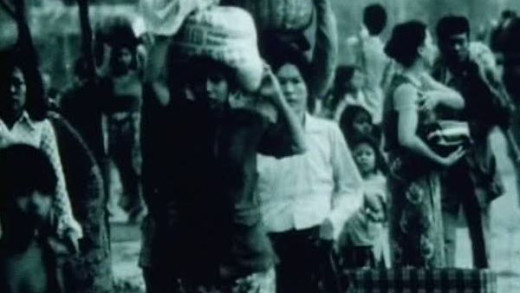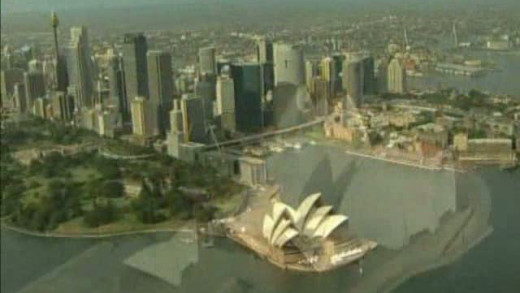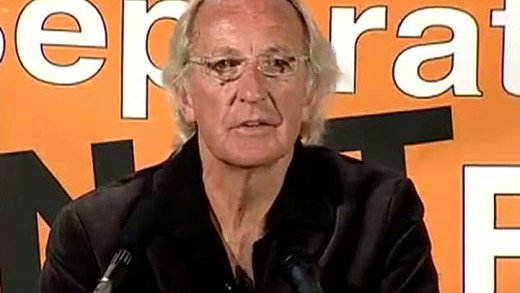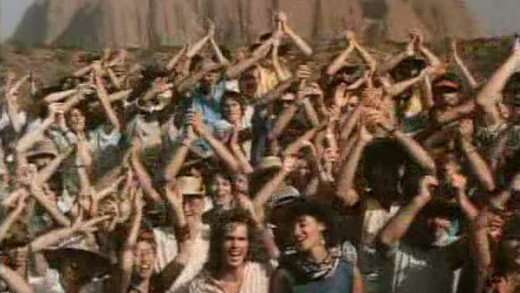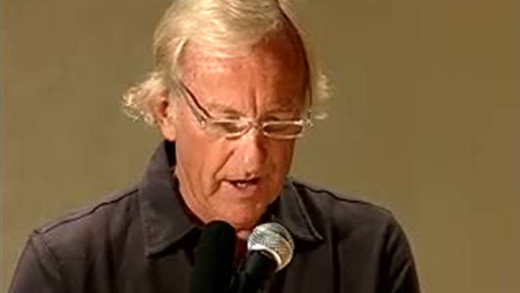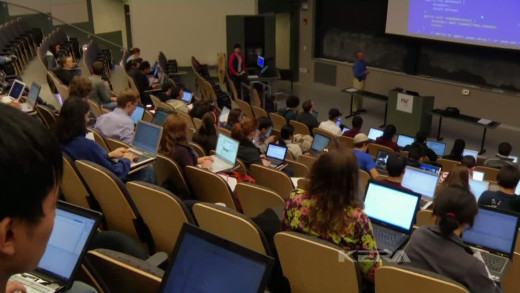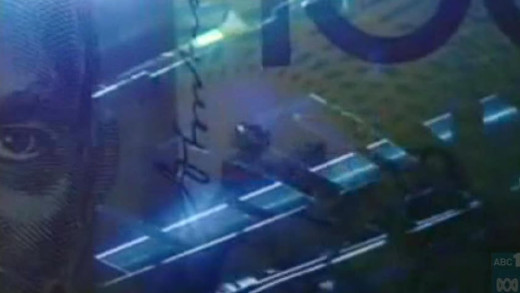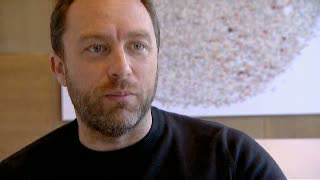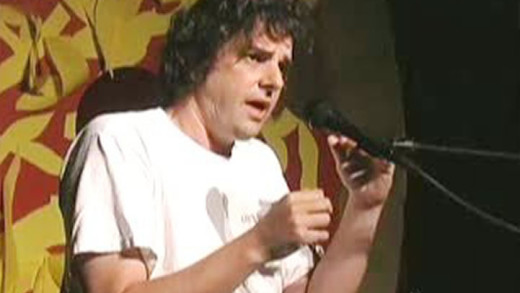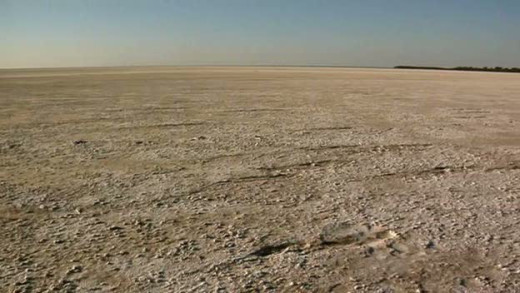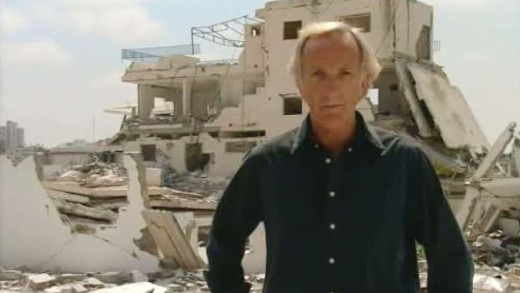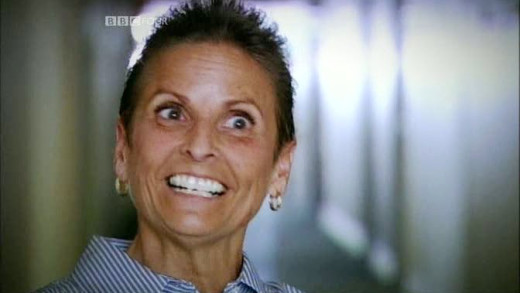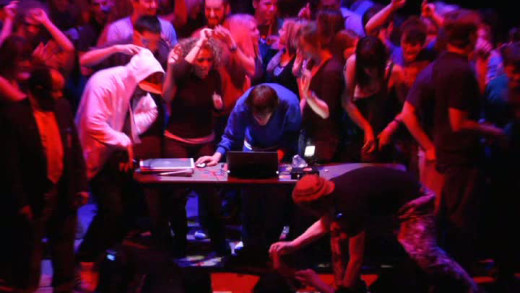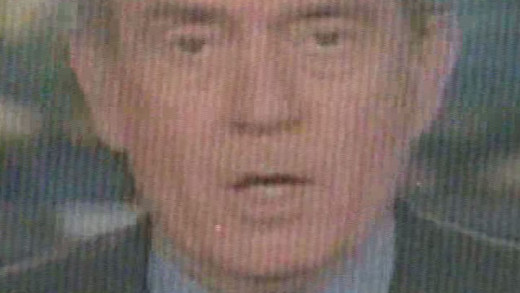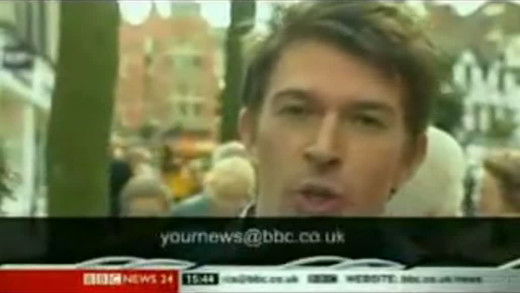As the first complete report of the atrocities committed by the Khmer Rouge and the devastating affects of US bombing in Cambodia during the Vietnam War, Year Zero -- The Silent Death Of Cambodia is an important and historic document of the grim reign of Pol Pot and the world's response of indifference and inaction...
The 2000 Olympic Games in Sydney were universally recognised as an overwhelming success. The Australian heroine from start, when she carried the Olympic torch into the stadium, to finish, as she crossed the line to take 400m gold, was the indigenous athlete Cathy Freeman. Against the will of many of her still oppressed people, she came to represent the symbol, albeit shallow, of reconciliation between White Australia and Indigenous Australia. But the frenzy of flames and fireworks surrounding the Games blinded the rest of the world to the real history behind it all...
Since 1945, by deed and by example, the US has overthrown 50 governments, including democracies, crushed some 30 liberation movements and supported tyrannies from Egypt to Guatemala. Bombing and war is as American as apple pie. Obama, having stacked his government with warmongers, Wall Street cronies and polluters from the Bush and Clinton eras, the 45th president is merely upholding tradition...
In these three films, John Pilger and Alan Lowery return to Australia to celebrate the country’s bicentenary, interviewing an extraordinary range of Australians from diverse backgrounds, each of whose views are a long way from those of the treasured Aussie stereotypes...
Australian journalist, author and film maker John Pilger speaks about global media consolidation, war by journalism, the US military and its quest for domination/hegemony in the post 9-11 era and the false history that is presented in the guise of 'objective' journalism...
The Mayfair Set is a four part series that studies how capitalists overtly and surreptitiously came to prolifically shape governments during the 1980s, epitomised by the Thatcher government in Britain at the time. But the corporate influence of political power doesn't simply arrive, it rather culminates after decades of engineering rooted in the economic collapse from the aftermath of the Second World War. This series focuses on the unreported and almost unseen approach that capitalists have taken since the 1940s to gradually take control of the political systems of not only the United States and Britain, but elsewhere around the world—exemplified by the boom of globalisation.
The Living Dead: Three Films About the Power of the Past is a series of films that investigate the way that history and memory (both national and individual) have been manipulated and distorted by politicians and others for various means of control...
Pandora’s Box
Pandora's Box -- A fable from the age of science, is a six part series examining the consequences of political and technocratic rationalism, tying together communism in the Soviet Union, systems analysis and game theory during the Cold War, economy in the United Kingdom during the 1970s, the insecticide DDT, Kwame Nkrumah's leadership in Ghana during the 1950s and 1960s and the history of nuclear power.
Within a single generation, digital media, the Internet and the World Wide Web have transformed virtually every aspect of modern culture, from the way we learn and work to the ways in which we socialise and even conduct war. But is technology moving faster than we can adapt to it? Is our constantly-wired-world causing us to lose as much as we’ve apparently gained? In Digital Nation, Douglas Rushkoff and Rachel Dretzin explore what it means to be human in a 21st-century digital world...
Dirty Money
In the late 1990s, the Reserve Bank of Australia thought it was on a winner. The bank had developed the technology to create polymer bank notes that it claimed rivalled paper money. So the Reserve Bank decided to set up a subsidiary company called Securency to sell the technology to the world. It had just one problem though—getting legitimate access to other central bank officials to pitch the idea. So instead, Securency decided to employ a shadow network of local "fixer agents" to make "connections" with relevant officials, lavishing them with prostitutes, cash, and bribing them into deals. Dirty Money is the story of this institutional corruption at the highest level of finance in Australia.
Filmmaker Brian Flemming documents his journey exploring Christianity by questioning the existence of Jesus, examining evidence that supports the Myth of a Christ against the existence of a historical Jesus, as well as examining other aspects of the religion such as the questions of ethics of indoctrinating children in schools at a young age with the fear of god and other principles of faith instilled in them institutionally.
Google or Wikipedia? Those of us who search online are getting referred more and more to Wikipedia. For the past two years, this free online “encyclopaedia of the people” has been topping the lists of the world’s most popular websites. But do we really know what we’re using? The Truth According To Wikipedia plunges into the story behind Wikipedia and explores the powerful world of ‘Web 2.0’ -- Is it a revolution, or pure hype?
Loose Change is a series of films that present evidence that the September 11, 2001 attacks were planned and conducted by elements of the United States government. The series also examines anomalies in the historical record of the attacks while drawing comparisons from some of the many mysterious and renowned events that have reshaped world history, such as the Reichstag Fire in 1933 that catapulted Hitler to dictatorship and the Gulf of Tonkin Incident in 1964 that led to the Vietnam War.
What if you live in the most destructive culture ever to exist? What if that culture refuses to change? What do you do about it? Derrick Jensen, the author of Endgame responds to these imperative questions and details how industrial civilisation and the persistent and widespread violence it requires is ultimately unsustainable—and what to do about it. Jensen weaves together history, philosophy, environmentalism, economics, literature and psychology to produce a powerful argument that demands attention...
Made from the same elements as stars, plants, food and human beings, dirt is very much alive and very much just as complex. One teaspoon of dirt contains a billion organisms working in balance to sustain a series of thriving communities that have become pretty much totally invisible to our daily lives. Dirt -- The Movie tells the story of Earth's most valuable and underappreciated source of fertility, from its miraculous beginning to its tragic degradation...
John Pilger returns to the Occupied Territories of the West Bank and Gaza where, in 1974, he filmed a documentary with the same title -- Palestine Is Still The Issue -- a film about the same issues, a nation of people, the Palestinians, forced off their land and subjected to military occupation by Israel. Pilger hears extraordinary stories from Palestinians, though most of his interviews are with Israelis whose voices are seldom heard, including the remarkable witness of a man who lost his daughter in a suicide bombing. But for Palestinians, the overriding, routine terror, day after day, has been the ruthless control of almost every aspect of their lives, as if they live in an open prison. This film is about the Palestinians and a group of courageous Israelis united in the fight to be free...
The Intelligence Revolution is an extolling and largely non-critical account by advocate Michio Kaku who unflinchingly explains how artificial intelligence will "revolutionise homes, workplaces and lifestyles," and how virtual worlds will apparently become "so realistic" that they will "rival" the real physical world. Robots with "human-level intelligence" may finally become a reality according to Kaku, and in the ultimate stage of scientific mastery, the era of control imperative and domination, this culture will seek to merge human minds with so-called machine intelligence. Also, for the first time, we see how a severely depressed person can be turned into a happy person at the push of a button—all thanks to the convergence of neuroscience and microtechnology. What's wrong with such developments? And the larger culture such that technologies like this are being developed in the first place? How do such prospects impact the real physical world and the real physical lives of all of us?
With its motto "Don't be evil," Google claims it has the best intentions. But there are also claims that Google is slowly turning into Big Brother, keeping track of users and continuously making decisions about the information it provides. Will Google turn out to be the new Library of Alexandria, serving as the great collector that brings the world's information to supposedly everyone, as it claims? Or is it more like a monopolistic, Ministry-Of-Truth-type corporation that challenges the very freedom of information by its stronghold over internet data?
Film-maker Brett Gaylor explores the issues of copyright in the information age, mashing up the media landscape of the 20th century and shattering the wall between users and producers. The film's central protagonist is Girl Talk—a mash-up musician topping the charts with his sample-based songs. But is Girl Talk a paragon of people power or the Pied Piper of piracy?
Benny Hinn may be the most popular personality in the Christian world today. Thousands pack arenas to see him 'heal' the sick and the afflicted. Tens of thousands more watch his daily television program. Millions of dollars are donated every year to his ministry, none of which he says goes to him personally. But, what about those miracles? And where does all that money go?
Most people who know that the mainstream media manipulates stories, manufactures illusions, and exploits fears can realise that the reason is more than just bias or sloppy reporting. Behind The Big News shows the ideological agenda that originates outside the media that defines today's headlines, using examines of some of the biggest news stories in recent decades to illustrate how this agenda is rigorously promoted and protected.
This short film chronicles a metamorphosis of mainstream media and political power throughout the last decades, by looking at the role of the television journalist. In the early 1950s, not long after the invention of television itself, TV journalists essentially served as prompters for government figureheads and official viewpoints. This function changed somewhat however, with the political scandals of the 1960s and 70s, exemplified by Watergate, where some journalists joined the mainstream shift in society of questioning political power, big business and bureaucracy. Out of this boomed a new era of investigative journalism. But this ended with the fall of the Berlin Wall as the old certainties of "good and bad" and "right and left" were blurred and no longer simple. But rather than working to make sense of the complexity, journalism turned from moral principles to a simple reporting of experience, devoid of context. TV journalists now plead with the audience to send in photos and videos as a kind of so-called "democratised" media, but what actually functions as a vast echo-chamber of uncertainty and unaccountability.
9/11 -- Birth Of Treason provides an analysis of the attacks of September 11 2001. Amongst interviews and exchanges, Steven Jones and Kevin Ryan of Scholars for 9/11 Truth and Justice speak about their research. Examined is the phenomenon of the freefall-speed collapse of the towers and building 7, and Steven Jones' research into Thermite/Thermate explosives...
The suburbs are an unsustainable way of living. Developed in the post-war era of cheap oil and the car, the lifestyle was spruiked as the 'escape' from the industrial city to a more pastoral and rural way of life. However, they quickly evolved into a place that had neither of these qualities. Now, part of the problem of getting out of the suburban mentality is that a generation has grown up believing it to be a 'normal way of life' and even a life of entitlement, something which they will not give up without a fight...
Crude Impact examines the interconnections of human economic activity, the use of fossil fuels and the effects that these have on the environment, the climate and humanity. What is peak oil? And what does this mean of the issue of global warming? The film also investigates the questionable practices of oil companies, to which there are plenty of examples...
Supported by a mix of archival footage, NASA shots of burning oil fields and historical film excerpts, Crude Awakening examines peak oil. From Houston to Caracas, the Lake of Maracaibo, the Orinoco delta, Central Asia's secretive republic of Azerbaijan with its ancient capital Baku and the Caspian Sea, to London and Zürich. The film questions the future of oil with leading authorities such as oil investment banker Matthew Simmons, former OPEC chairman Fadhil Chalabhi, Caltec's head of physics, Professor David Goodstein, Stanford University political scientist, Terry Lynn Karl and peak oil expert, Matthew Savinar...
9/11 Mysteries presents and analyses over 90 minutes of demolition evidence, laced with witness testimonials from key figures in the events of September 11th such as William Rodriguez -- a janitor from the North Tower of the World Trade Centre who was inside during the attacks. Moving from the myth through to analysis and into a discussion of the players, careful deconstruction of the official story is set alongside clear physics. How do you turn a 110-story building to dust in under ten seconds?
Jesus Camp follows several young children as they prepare to attend an event called 'Kids on Fire,' a Christian summer camp run by Becky Fischer. Through interviews with Fisher, the children, and others, Jesus Camp illustrates the unswerving belief of the faithful—a housewife and home-schooling mother tells her son that creationism has all the answers; footage from inside the camp shows young children weeping and wailing as they promise to stop their sinning; child after child is driven to tears. These scenes are contrasted with clips from another Christian radio host who is appalled by such happenings. Are these children being brainwashed?
